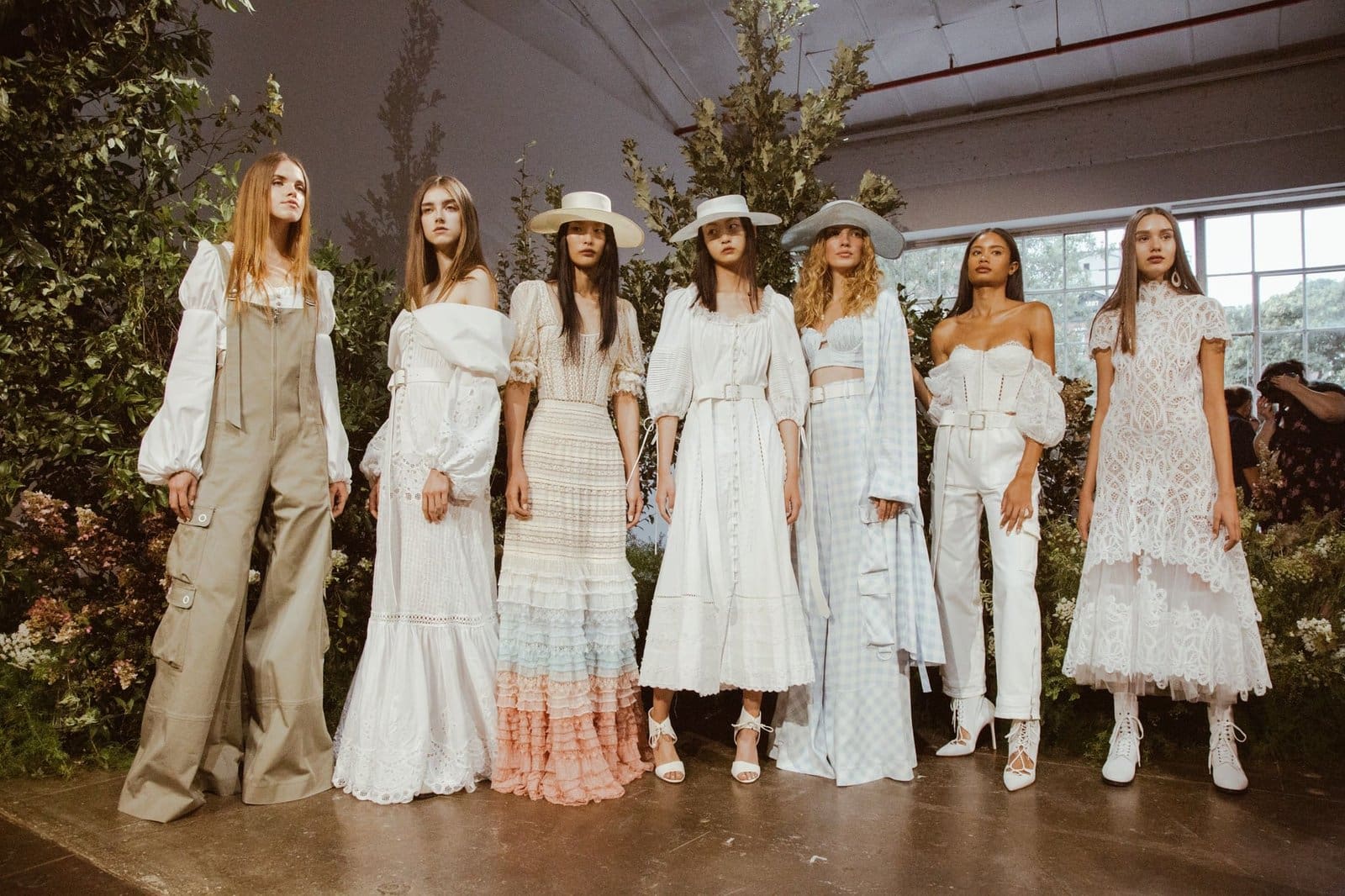Jonathan Simkhai’s business turned 10 this year, and he’s starting his second decade with a new mission: sustainability. Inspired in part by the industry’s heightened awareness and by his own growing family—he and his husband TJ Allers welcomed twins in 2018—Simkhai is debuting Jonathan Simkhai Standard, a capsule of low-impact essentials. Described by the designer as a “stepping stone” toward implementing better practices across his entire business, Standard is comprised of T-shirts, jeans, slip dresses, and fine-gauge knits, all at a lower price point than his main line: Tops start at $100, and jeans hover in the $300 range.
Like many of his American peers, Simkhai’s mid-sized label exists somewhere between “indie darling” and establishment brand; it isn’t new, but it also hasn’t gone corporate, and he made a name for himself years before the industry was looking into designers’ supply chains. Few of his competitors have entered the conversation in earnest, ostensibly because so much of the attention has been paid to brand-new names, but we’ve reached a point where every brand—high or low, heritage or nascent—is expected to track its impact on the planet and people. Still, he admitted he was hesitant to deviate from his message of 10 years: “I was scared to get involved [in the conversation] because I didn’t know where to start, and you feel like you’re opening yourself up to be scrutinized,” he said on a call from Los Angeles. “But my friend Nikki Reed, who is a sustainable fashion advocate, told me that’s exactly how you shouldn’t feel. You have to start somewhere, and then it evolves into something bigger. So once I got rid of that fear, it was easier to jump in.”

It’s an interesting moment to launch anything new, but the timing is unexpectedly working in his favor. Simkhai began developing Standard right before the pandemic, but the clothes are meeting women’s needs right now: comfortable, versatile, trend-proof items to wear at home or on the go. “During resort market, we were able to absorb the dip in sales [for our main line] because there was so much interest in Standard,” he says. “Retailers aren’t totally sure what the world will look like in November or December, but these are things people will want no matter what.”
Fans of Simkhai’s flounced skirts and lace dresses might be surprised by how minimal the Standard offering is. Devoid of bold colors or embellishments, it’s sleek and pared-back with just a touch of his signature sex appeal. Much of his sustainable efforts came down to the fabrics: He and his team looked for natural and recycled materials backed up by globally-recognized certifications, like viscose with the Forest Stewardship Council’s seal of approval, meaning it is sourced from responsibly managed forests where trees are consistently replanted. The organic cotton is verified by the Better Cotton Initiative, and his wool is Responsible Wool Standard-certified. Simkhai chose a vegan leather made from recycled nylon, and “searched high and low” for upcycled lace to sub for the virgin polyester material he’s used in the past. As he sourced those fabrics for Standard, he also discovered new ones to use in his main line, like a crepe made of FSC-certified yarns.

“We’ve been using the same [polyester] crepe for years, but now we’re going to use this,” he says. “It’s a small thing, but it’s exciting.”Materials are just one part of the equation. To reduce transportation impacts and support local production, Standard is produced in L.A., “within a 15-mile radius of our headquarters,” according to the designer. The made-in-L.A. trope has been compromised of late, with poor working conditions and unlivable wages being reported at certain factories. “Whether it’s in L.A. or anywhere else, we are always going to our factories to ensure they have good working conditions, and that they’re now using the right PPE,” he says. “You walk in and can see right away if it’s a good place to work and people are happy, or if it isn’t.”Beyond those tangible changes, Simkhai hopes Standard will start a conversation with his customers about timeless design and value. “It isn’t about new, new, new,” he says. His general aesthetic is leaning in that direction, too, for both Standard and his runway collection: “I’m gravitating toward cleaner, streamlined pieces that don’t feel fussy, and items with longevity,” he says. “I think that came from working on Standard. I want to implement that philosophy into the main line, and just make really beautiful products you can wear for a long time.”

